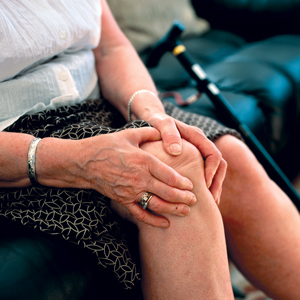
Findings from a new study suggest better pain management may be in order for many awaiting total joint replacement. Researchers from the University of Edinburgh studied 4,000 Scottish patients and found that 19% of patients awaiting a new hip and 12% of patients in need of total knee replacement are in extreme pain or discomfort.
Using an internationally approved score called the EQ-5D, the researchers measured the patients’ health conditions, along with their ability to perform routine activities. Their levels of mobility, discomfort and anxiety were also assessed. The pain level of the 19% awaiting a total hip replacement was defined as “worse than death” by the EQ-5D, and the 12% of patients awaiting knee replacement experienced similar pain. The scores for those in need of total joint replacement were worse than for other chronic medical conditions, including heart failure, diabetes and chronic obstructive coronary disease, but improved dramatically following joint replacement surgery.
“Our study has quantified the extent to which quality of life is affected by end-stage degenerative joint disease,” the researchers stated in the study. “Increasingly, referrals to secondary care for joint arthroplasty surgery are being limited by criteria such as body mass index or Oxford score. Leaving patients to deteriorate to negative EQ-5D scores limits the outcome they can achieve following joint arthroplasty.”
The research was published in The Bone & Joint Journal.



